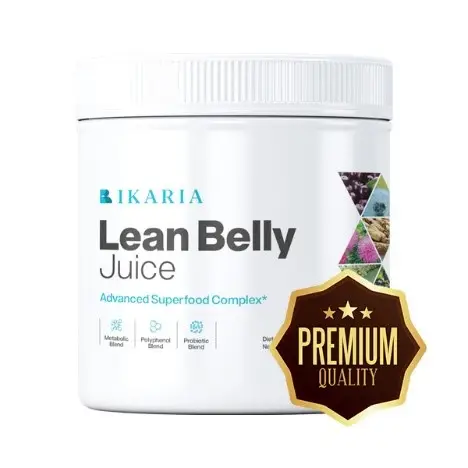
In today’s health-conscious world, the quest for the perfect diet seems never-ending. With a plethora of options available, it can be challenging to navigate the sea of conflicting information. From low-carb to plant-based, each diet promises a myriad of health benefits, leaving many wondering which one reigns supreme. In this comprehensive guide, we’ll delve into the top five diets, exploring their merits, drawbacks, and identifying the standout contender backed by proven results.
1. Mediterranean Diet

Benefits:
- Rich in fruits, vegetables, whole grains, and healthy fats like olive oil, the Mediterranean diet is renowned for its heart-healthy properties.
- Numerous studies have shown that adhering to this diet can reduce the risk of heart disease, stroke, and certain cancers.
- Emphasizes moderate consumption of fish, poultry, and dairy, along with red wine in moderation, contributing to overall well-being.
Disadvantages:
- May be challenging for individuals accustomed to high-fat or processed diets to transition to a primarily plant-based eating pattern.
- Requires careful attention to portion sizes and food quality to reap the full benefits, which may require additional time and effort in meal planning and preparation.
Standout Factor: The Mediterranean diet stands out for its extensive scientific backing, consistently demonstrating positive effects on cardiovascular health and longevity. Its emphasis on whole foods and balanced nutrition makes it a sustainable option for long-term health and wellness.
2. Ketogenic Diet

Benefits:
- By drastically reducing carbohydrate intake and increasing fat consumption, the ketogenic diet forces the body to enter a state of ketosis, where it burns fat for fuel.
- Advocates claim that the ketogenic diet can lead to rapid weight loss, improved blood sugar control, and enhanced cognitive function.
- Some research suggests that the ketogenic diet may have therapeutic benefits for certain medical conditions, such as epilepsy and neurodegenerative diseases.
Disadvantages:
- Initial side effects, known as the “keto flu,” can include fatigue, headaches, and nausea as the body adjusts to ketosis.
- Restrictive nature may make it difficult to adhere to long-term, leading to potential nutrient deficiencies and social limitations.
- High intake of saturated fats from sources like butter and red meat may increase the risk of heart disease and other adverse health outcomes.
Standout Factor: While the ketogenic diet has gained popularity for its rapid weight loss results, its long-term sustainability and potential health risks warrant careful consideration. While effective for short-term goals, its restrictive nature may not be suitable for everyone in the long run.
3. Plant-Based Diet

Benefits:
- Plant-based diets, centered around whole plant foods like fruits, vegetables, legumes, and grains, are rich in fiber, vitamins, and antioxidants.
- Studies have linked plant-based diets to lower rates of chronic diseases, including heart disease, diabetes, and certain cancers.
- Environmental benefits, such as reduced greenhouse gas emissions and water usage, make plant-based diets a sustainable choice for both personal and planetary health.
Disadvantages:
- Requires careful planning to ensure adequate intake of essential nutrients like protein, iron, calcium, and vitamin B12, especially for those transitioning from omnivorous diets.
- Limited availability of plant-based options in certain settings, such as restaurants or social gatherings, may present challenges for adherents.
- Some individuals may experience digestive discomfort initially due to increased fiber intake, though symptoms typically resolve over time.
Standout Factor: The plant-based diet stands out for its comprehensive health benefits, promoting longevity and sustainability while reducing the risk of chronic diseases. Its emphasis on whole, unprocessed foods makes it a versatile and adaptable approach to eating for individuals of all ages and backgrounds.
4. Paleo Diet

Benefits:
- Modeled after the presumed diet of our Paleolithic ancestors, the paleo diet focuses on whole foods like lean meats, fish, fruits, and vegetables while excluding grains, dairy, and processed foods.
- Advocates claim that the paleo diet can lead to weight loss, improved blood sugar control, and reduced inflammation.
- Emphasizes nutrient-dense foods and eliminates processed sugars and refined carbohydrates, promoting overall health and well-being.
Disadvantages:
- Restrictive nature may lead to deficiencies in certain nutrients like calcium, vitamin D, and fiber, especially for individuals eliminating entire food groups.
- Cost-prohibitive for some, as sourcing high-quality, organic meats and produce can be more expensive than conventional options.
- Lack of long-term research on the paleo diet’s effects on health and sustainability, raising concerns about its efficacy and safety over time.
Standout Factor: While the paleo diet shares similarities with other whole-food-based approaches, its focus on ancestral eating patterns and exclusion of modern processed foods may offer unique benefits for certain individuals. However, its restrictive nature and limited long-term data warrant further investigation into its potential effects on health and sustainability.
5. Intermittent Fasting

Benefits:
- Intermittent fasting involves cycling between periods of eating and fasting, with popular methods including the 16/8, 5:2, and alternate-day fasting.
- Research suggests that intermittent fasting can aid weight loss, improve metabolic health, and increase longevity by promoting cellular repair and autophagy.
- Flexible and adaptable approach to eating, allowing individuals to tailor fasting protocols to their lifestyle and preferences.
Disadvantages:
- May lead to feelings of hunger, irritability, and fatigue during fasting periods, especially initially as the body adjusts to the new eating pattern.
- Potential for overeating or making unhealthy food choices during non-fasting periods, negating the benefits of fasting and hindering weight loss efforts.
- Not suitable for everyone, particularly those with a history of eating disorders or certain medical conditions, who may require personalized guidance and supervision.
Standout Factor: Intermittent fasting stands out for its flexibility and potential health benefits, including weight loss, improved metabolic health, and longevity. Its versatility makes it accessible to individuals of all ages and lifestyles, offering a customizable approach to achieving health and wellness goals.
Conclusion:

While each of these diets boasts its own set of benefits and drawbacks, the standout contender that emerges with proven results is the Mediterranean diet. Backed by extensive scientific research and renowned for its heart-healthy properties, the Mediterranean diet offers a balanced approach to nutrition that promotes longevity, well-being, and sustainability. Whether you’re looking to improve your cardiovascular health, manage your weight, or simply adopt a healthier lifestyle, the Mediterranean diet stands as a beacon of evidence-based nutrition in a sea of dietary trends. As always, it’s essential to consult with a healthcare professional or registered dietitian before making significant changes to your diet to ensure it aligns with your individual needs and goals.
As part of your diet and exercise plan, you might want to consider adding weight loss supplements to help you on your weight loss journey.

